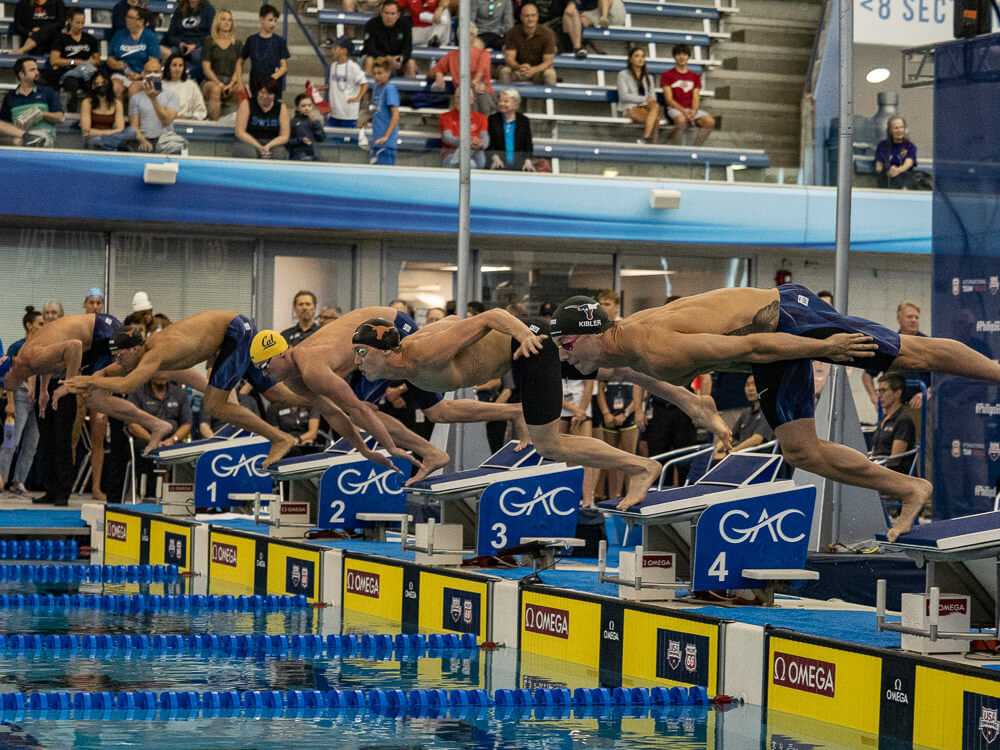Taper Time: Common Misconceptions When Tapering In Swimming

Taper Time: Common Misconceptions When Tapering For Swimming
Reducing yardage, getting extra sleep, eating better, and getting faster: Every swimmer knows this combination as taper. Telling a swimmer that their taper is starting will make their day, I promise. They won’t stop smiling. Although almost all swimmers look forward to the end of their season when taper begins, most are unaware of the logic and techniques involved in the process. Swimmers should be informed about the science behind tapering in order to be more successful in the water. By doing this, any misunderstandings will be minimized and the benefits will be maximized.
Misconception: Taper Is Just Easy Practice
The concept of taper is unique. It is high intensity training incorporated with a lot of rest. Just because practices are much more manageable doesn’t mean swimmers can take it easy in the water. Swimmers must take the practices seriously in order for their bodies to respond to the training correctly. Paying attention to the practices and listening to coaches is essential. If the practice says to sprint, swimmers should sprint; if the practice says to swim easy, swimmers should swim easy.
Misconception: Swimmers Can Eat Whatever They Want On A Taper
Diet plays a significant role in a swimmer’s taper. Swimmers have to be well nourished with the proper foods. Remember, yardage is decreasing, and they are not burning as many calories as they were during their midseason swim practices. Swimmers have to make sure to eat a variety of healthy foods and drink plenty of water. This will help with weight maintenance and may help with performance.
Misconception: Swimmers Don’t Have To Communicate With Their Coach
Communication between swimmer and coach is crucial for a swimmer to have a successful taper. Coaches can’t help their swimmers unless they know how they feel in the water. If communication is there, coaches can adjust the practice for the swimmer to help them reach their goal times. Through communication, coaches should be able to harness a swimmer’s full swimming potential.
Misconception: Every Swimmer Tapers The Same
Every swimmer tapers differently. Some swimmers take longer to taper, while other swimmers take a shorter amount of time. The muscle mass of the swimmer plays an important role. Swimmers with a larger muscle mass will take longer to taper off their training than swimmers with a lower muscle mass. Also, the events that the swimmer contests will determine the differences in approach. These differences might require a modification to practices with higher or lower yardage.
Misconception: Taper Is a Fast Process
Swimmers usually take one to four weeks to taper properly. Within that time, strength training, dryland exercises, and practices need to be adjusted. During this process, it is important for the body to recover and rest. This is where the effort the swimmer has put in during the season can make a difference. They need to be patient and believe in the process.
Nearly every swimmer is familiar with and enjoys the taper process, but very few are aware of its scientific basis. Learning about the concept can help guarantee the best results. Tapering is a science. Swimmers are going to have to experiment with their taper in order to swim at their best. Hopefully, swimmers will be able to better understand what is expected the next time they hear, “It’s taper time!”
All commentaries are the opinion of the author and do not necessarily reflect the views of Swimming World Magazine nor its staff.




Brilliant article although I don’t all together agree that most swimmers aren’t aware of why it works. Any swimmer who invests his life in the sport has a good sense of the mechanics nowadays but all said and done a very good insight